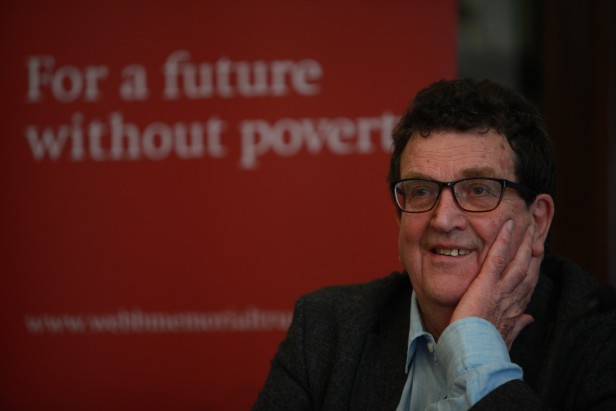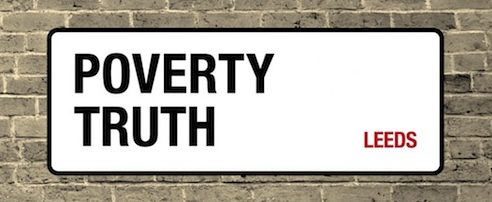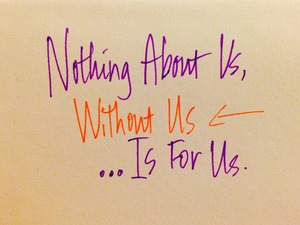Whose responsibility is poverty?
Posted on 30 Aug 2016 Categories: Blog
by Barry Knight
In October 2016 the New Statesman will publish its annual Webb Memorial Trust supplement. This year we explore the theme of agency; who has the understanding, responsibility, and power to bring about an end to UK poverty? The publication will include contributions from Oxfam, The Fabian Society, Centre for Local Economic Strategies (CLES), Town and Country Planning Association (TCPA), and several independent academics and researchers.
Whose responsibility is poverty? asks Barry Knight, Director of the Webb Memorial Trust

How to end poverty? This has been a central question for social reformers since Beatrice Webb’s 1909 Minority Report on the Poor Law challenged society to end destitution.
Research for the Webb Memorial Trust, however, suggests, that this is the wrong starting point. Answers to ‘how?’ suggest mechanical policy levers to deliver what we want. Yet, such efforts almost always lead to failure. Examples include the American ‘War on Poverty’, which was designed to deliver a great society in the 1960s, but didn’t. More recently, the Neighbourhood Renewal Programme was the centre point of Labour’s regeneration policy designed to close the gap between the poorest neighbourhoods and the rest but was closed early by the Treasury because of lack of progress.
A government led ‘social administration’ approach to poverty, in which policies could foster an economy creating good jobs and support a welfare system, belongs to an untypical age in the thirty years after 1945. Notwithstanding considerable social advance, the system failed to lift the bottom 20 per cent of people out of poverty and did little to address underlying inequality.

Even if a top-down approach could work, there is another reason why we need to think differently. The old system was dependent on people in poverty being passive consumers of services and benefits. In Julien Le Grand’s famous 1997 study Knights and Knaves, he characterised them as ‘pawns’.
In post-Brexit Britain, it is clear that ordinary people, particularly young people, are no longer willing to play that role. With such widespread contempt for the establishment, people will no longer accept such blueprints. People want to be part of an active society where everyone has a role to play – and without that – no policy can succeed. The growth of Poverty Truth Commissions, and their slogan of ‘Nothing about us without us is for us’, is emblematic of the new mood.
The key question is therefore not how, but ‘who?’ Answers to this question imply responsibility, agency, and power. An example is the Living Wage Campaign. Ordinary people in the East End of London – despite their evident diversity – united around a common aim and changed government policy from the bottom up. If enough people want change, change will happen.
The 2008 financial crash, subsequent austerity policies, and now Brexit have all challenged the idea that development depends on state agencies and an elite group of NGOs and poverty campaigners. This industry is in retreat and is now emerging from its preoccupation with its own survival to realise that it needs to engage the general public or face extinction.
This involves reframing the narrative of poverty. The term itself is “toxic” and has no place in an organising strategy for the society we want. Poverty, according to Beatrice Webb, is a symptom of economic mismanagement and social structure. It follows that we need to address the causes, rather than the symptom. In doing this, we need to move to an asset based approach where people are not passive victims requiring support to enable them to subsist, but instead require a framework in which they can play an active part in a good society that enables them to fulfil their potential as free and creative human beings.
involves reframing the narrative of poverty. The term itself is “toxic” and has no place in an organising strategy for the society we want. Poverty, according to Beatrice Webb, is a symptom of economic mismanagement and social structure. It follows that we need to address the causes, rather than the symptom. In doing this, we need to move to an asset based approach where people are not passive victims requiring support to enable them to subsist, but instead require a framework in which they can play an active part in a good society that enables them to fulfil their potential as free and creative human beings.
This requires a different model of power, deriving from early twentieth century feminist writer Mary Parker Follett, of “power with”, rather than “power over”. On this model society is a self-organising system in which everyone is tasked with the task of the economy and society we want. No matter who we are, we are all involved in making things better.
The ‘agency’ supplement will be published by the New Statesman on 27 October 2016. It will also be available to download from the New Statesman and Webb Memorial Trust websites. The Trust is also running an essay competition in conjunction with the New Statesman.
The cover image for this blog was produced by Salford Poverty Truth Commission.
Posted on 30 Aug 2016 Categories: Blog
